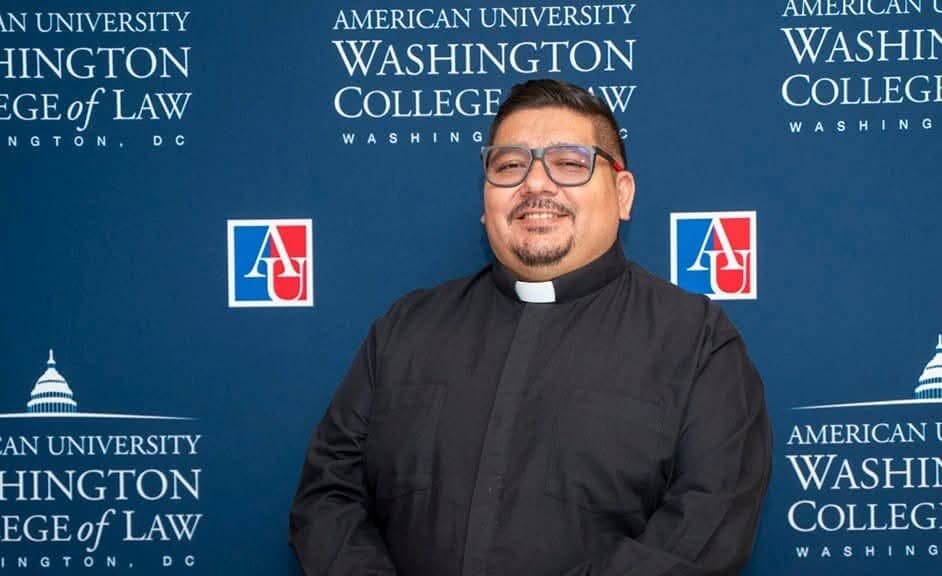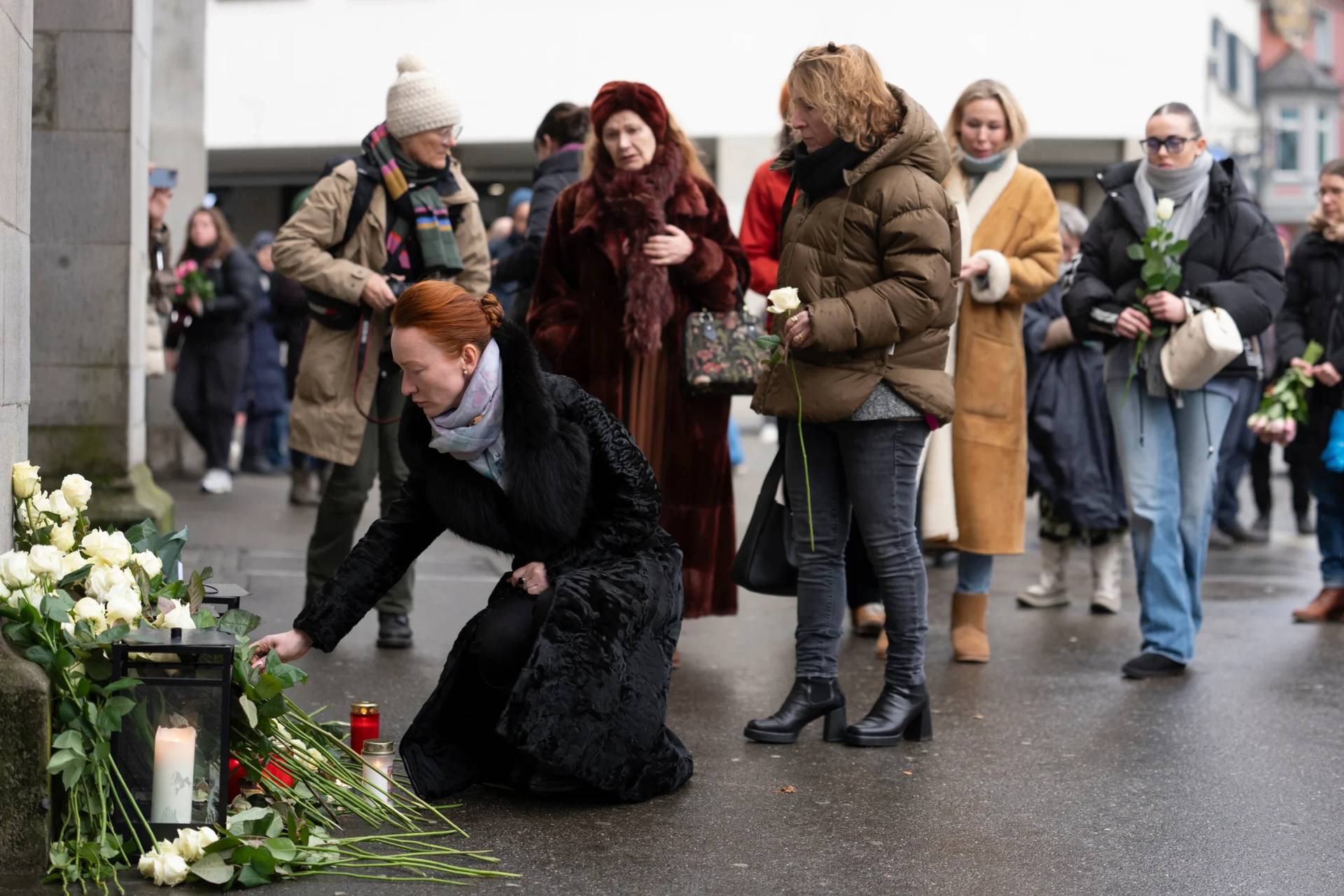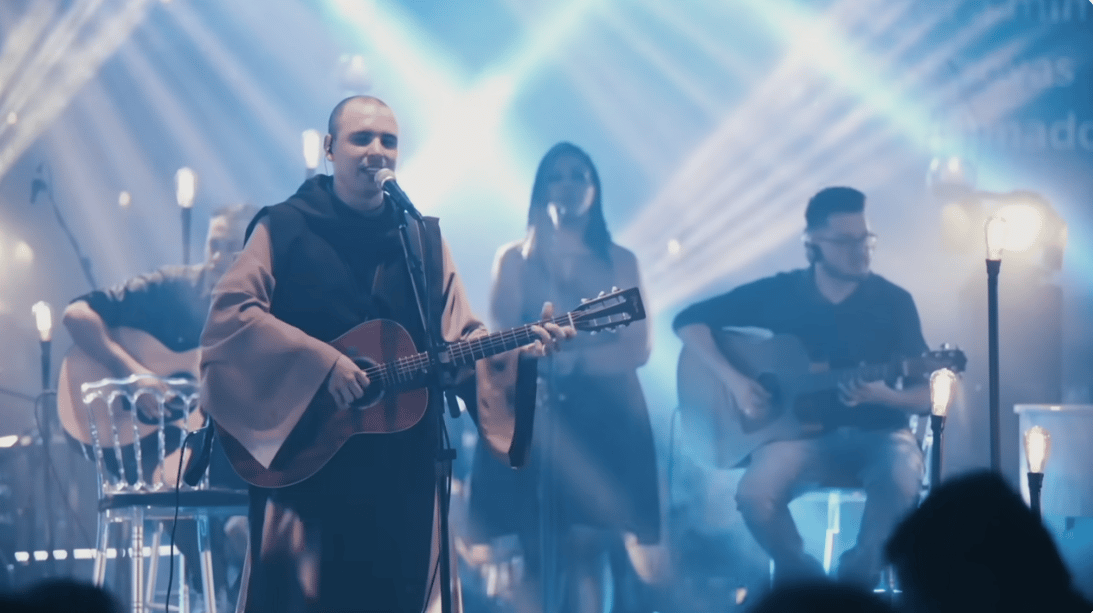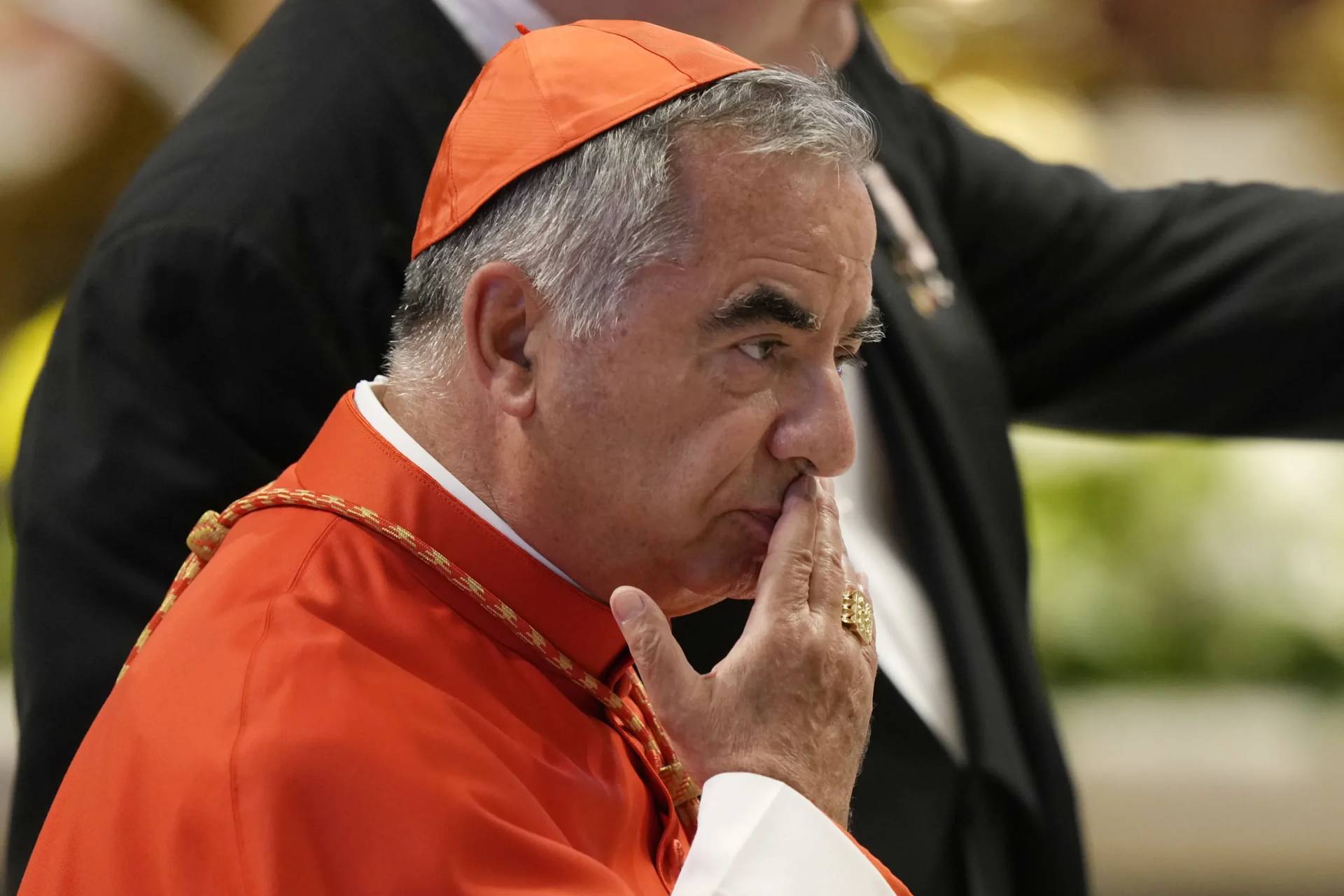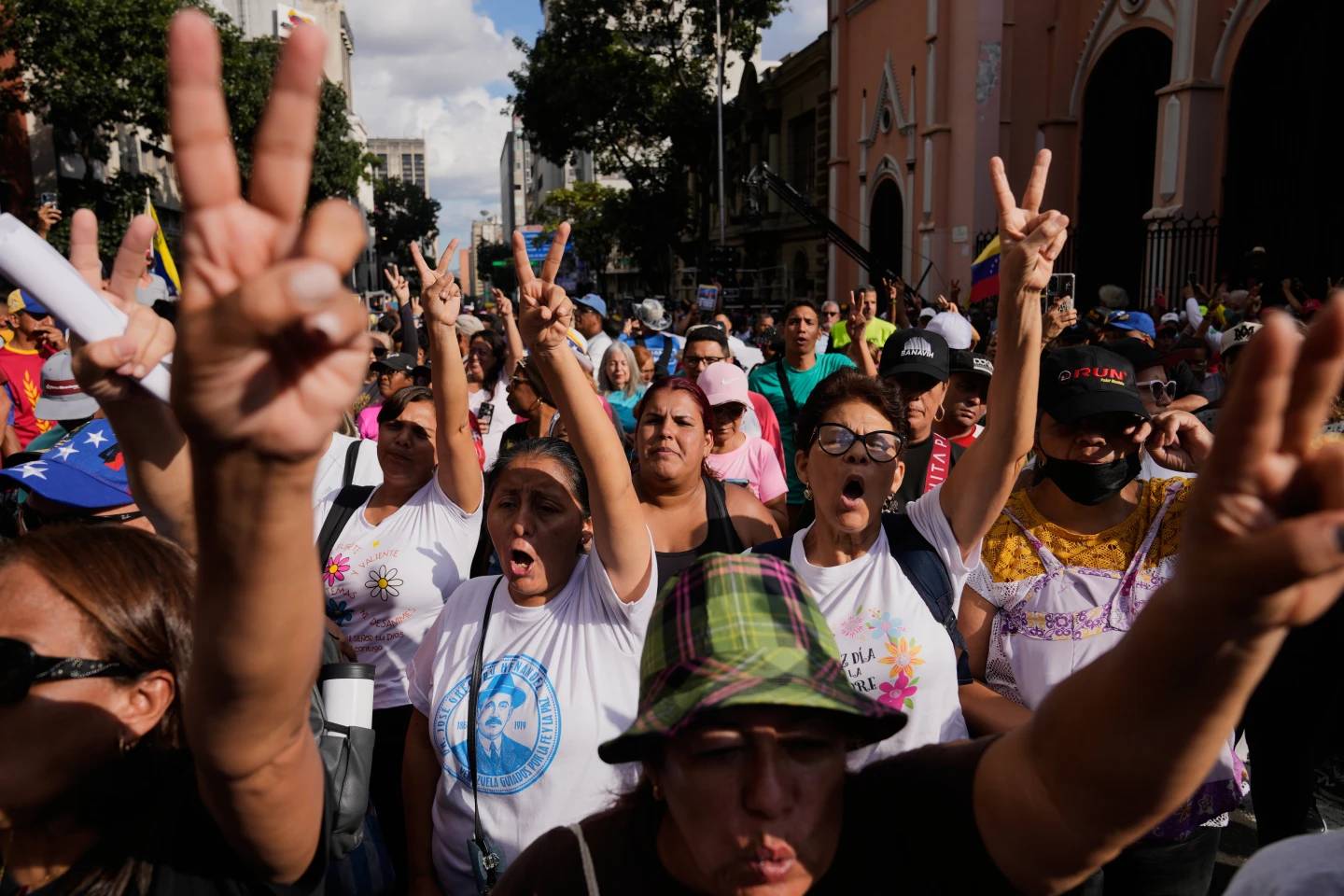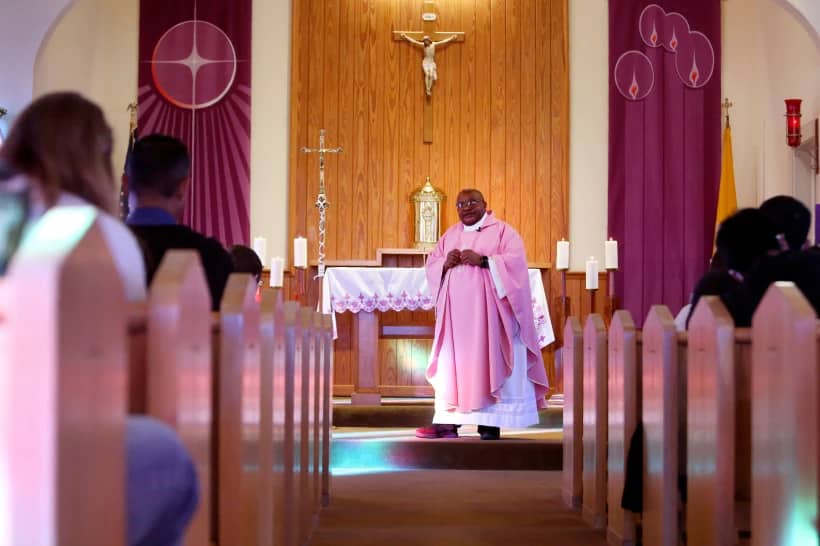ORLANDO, Florida – Nearly one in ten Coloradans today is an immigrant, and, according to the Pew Hispanic Center, there are almost 200,000 undocumented Latinos and Latinas, coming up on a robust five percent of the state’s population. One might think, therefore, that church leaders in Colorado speaking out in defense of immigrant rights risk a special degree of blowback from the Catholic grassroots.
According to Archbishop Samuel Aquila of Denver, however, that’s basically not the case, and for a simple reason: Catholics see these Hispanic immigrants in their parishes contributing to the Church, which defuses the temptation to think in terms of “us” and “them.”
“Over 60 of our parishes have Mass in Spanish every weekend,” Aquila said. “They know these people are there, and that they’re participating. There isn’t a whole lot of blowback in Denver.”
Among other services provided by the Catholic church in Denver, Aquila said he’s got a team of volunteer lawyers who provide free counsel to the undocumented through the city’s Centro Juan Diego, operated by the archdiocese. Each night they hang out their shingles, Aquila said, roughly 150 to 200 people show up needing help.
Occasional scandals over criminal acts aside, Aquila said, “Our people all know that for the most part, all of these immigrants are really good, and they’re contributing to the Church.
“There’s a real respect for them, recognition of them and the importance of working with them,” he said.
The 66-year-old Aquila, who’s served as Archbishop of Denver since 2012, spoke to Crux in Orlando, Florida, during the July 1-4 “Convocation of Catholic Leaders,” a gathering of almost 3,500 bishops, clergy, religious and laity, representing more than 80 percent of the dioceses in the country.
On other matters, Aquila said:
- One great thing about the convocation, he said, is that it put on display a basic truth about American Catholicism: “One can see a microcosm in the church in the United States of the universal Church,” he said, “because of the number of immigrants we have, the number of refugees we have, and whether it’s Oceania, Latin America, Mexico, Africa, all of them are present here in one way or another.”
- Pope Francis’s document Laudato Si’, the first-ever papal encyclical entirely devoted to the environment, played especially well in Colorado, where people tend to be fiercely proud of the state’s natural wonders.
- If you’re looking to find what Pope Francis calls the “peripheries” in the U.S. today, one place to go is among older women. “The greatest homelessness in the United States is among women over 55,” he said, explaining why Catholic Charities in Denver in September is opening a new shelter for women in that age group, “to give them the protection they need and to help them get back on their feet.”
- Aquila stressed that the heart of bringing people to the faith is by leading them to a personal encounter with Jesus Christ, out of which, he believes, everything else will flow. “Anyone who’s encountered Christ will always want to go out into the peripheries, will always want to be a missionary,” he said. “The mission and the encounter with Christ are one.”
The following are excerpts from Crux’s conversation with Aquila, which took place July 3.
Crux: What vibe are you picking up from Denver folks at this convocation?
Aquila: I brought 18 people with me, and they’re from different parishes, different apostolates and ministries. Their feedback has been very positive. They see the importance of the encounter with Christ.
I think they also see how beautifully the universality of the Church is reflected here, in the diversity of the people who are present from so many different nationalities. One can see a microcosm in the church in the United States of the universal church, because of the number of immigrants we have, the number of refugees we have, and whether it’s Oceania, Latin America, Mexico, Africa, all of them are present here in one way or another. It’s great to see the diversity on the panels.
People have been speaking about their own experience and their own encounter with Jesus Christ and how that has transformed their lives. The witness talks have been fantastic.
Can you give us a couple of personal highlights?
When we look at Pope Francis and ‘The Joy of the Gospel,’ really reaching out to the peripheries and reaching out to those who are known as the ‘nones,’ the question is how you reach those people and invite them to come to know Christ? One of the things that’s really been helpful to hear, over and over again, is really accepting people where they’re at, going out and reaching out.
You don’t begin with the message of the Gospel, but you begin with the human relationship, the human encounter, and that encounter is so important. It helps people to come to know the love of Christ and to open their hearts to him, but the initial step is engaging the other person, whether it be in our prisons, to the homeless, to those who are financially struggling, whatever it may be, helping them to know God’s love for them through you.
The other aspect, I think, is the importance of beauty, drawing people through beauty. Something I do in my confirmation homilies is to ask the kids, have you ever been in that situation outdoors – and it’s easy in Colorado – where you just stop, and are captured by something you’re gazing at? Almost every kid raises their hand, they know exactly that experience.
C.S. Lewis called that being ‘surprised by joy.’
Yes, exactly. Then, you can draw them into God and seeing the reflection of God in the beauty of creation. The beauty of all the nationalities present here, of all the countries represented here, is impressive, and what unites us all is our faith in Jesus Christ and the Catholic Church. There’s a sense of wanting to invite people into that, being excited and joy-filled for the Gospel.
Speaking of Colorado’s natural wonders, Coloradoans tend to be very environmentally-minded. Does that mean Laudato Si’ played especially well there?
I think it did. It’s a matter of caring for the environment, which is extremely important. The Lord has given us that command in Genesis, to care for the world and for nature, and I think [the key is] helping people understand that, really looking at the little ways they can do that in their own communities, whether it be recycling, using less energy, whatever it is. It’s about helping them to see that the environment is a gift.
What are you hoping your 18 people will take back to Denver when this convocation is over?
We’re going to meet tomorrow to talk about what we’ve experienced, and what do we want to take back to the archdiocese to set up as goals. Within that, I see my role as kind of getting the conversation started, and then really listening to their experience and ideas for how to move this forward and bring the message of the Gospel to the peripheries of Denver.
One of the exciting things we’ve been looking at, and have started – it will be opening in September – is a new women’s shelter over on Smith Road. The greatest homelessness in the United States is among women over 55.
This is a facility designed for older women?
It’s a facility designed for women 55 and over, who are homeless, to give them the protection they need and to help them get back on their feet.
Is it being run by Catholic Charities?
Catholic Charities, yes. There’s many such initiatives that are there.
In Denver, we also have things like the Augustine Institute, FOCUS, the Catholic Medical Association, and other groups, whose people live in Denver and go to church in Denver, so I’ve invited them to come into the conversation, to hear their perspectives, and to hear what they’re doing within their own parishes for the advancement of the Gospel. It’s about looking at how we can continue to have vibrant parishes, and really invite people into intentional discipleship, opening themselves up to that.
It’s been a conversation within the presbyterate for the last few years. I brought into one of our clergy days, where we spend three days away, Sherry Weddell to look at her book Intentional Discipleship. It really opened the hearts of many of the clergy to begin to explore that, and look at how to implement it – how to help our people to have that personal encounter with Jesus Christ, and how he then leads us to the apostolates and going out into the peripheries.
Anyone who’s encountered Christ will always want to go out into the peripheries, will always want to be a missionary. The mission and the encounter with Christ are one.
You mentioned the peripheries of Denver a moment ago. Where do you find the peripheries in Denver?
I think that certainly we find it in some of the poverty that’s present there, the homeless that’s present there. All you have to do is to walk up and down the 16th Street Mall, even along Colorado Boulevard and University and other places that are fairly nice areas, and you’ll see homeless persons standing in the street and seeking help.
Another area where I believe there’s a sort of existential type of poverty, and periphery, is among the ‘nones,’ those who have no faith or who have never really given thought to God. There’s a certain hopelessness among them, so giving them hope, helping them by just raising the questions, is really important.
A third area certainly would be among the people in the pews who just kind of show up and aren’t engaged.
People who are just sort of phoning it in?
Right. We need to look at how we help them to really become intentional disciples. They’re in our pews, they’re there, and they obviously desire something. So, it’s a question of how we begin to engage them and help them to engage Christ.
Finally, there’s the Hispanic community. We have such a large Hispanic community in the archdiocese, and we’re blessed to have the Centro Juan Diego, which really reaches out to all of them and ministers to them, helping our Hispanic Catholics know it’s there to help them. Also, we have to help the immigrants who may not have the proper papers to be present in the country, working with them towards citizenship and all of that.
Obviously, that includes providing legal services. How many lawyers do you have working on that end of things?
Catholic Charities has two or three lawyers working on it, but then we have volunteer lawyers twice a month at Centro Juan Diego who spend three, four, five hours each evening they’re there working with people. We have maybe 150 to 200 people who show up each time needing assistance.
Do you ever get any blowback from the grassroots about that? Immigration is such a divisive issue, so do you ever hear, ‘Why are we helping these people, they shouldn’t be here in the first place’?
No, and I think that’s because of the experience in our parishes. Over 60 of our parishes have Mass in Spanish every weekend. They know these people are there, and that they’re participating. There isn’t a whole lot of blowback in Denver.
Every once in a while, when a criminal element may arise, someone is killed by somebody who’s been deported two or three times and they’re let back in, that always raises its ugly head. But, our people all know that for the most part, all of these immigrants are really good, and they’re contributing to the Church. There’s a real respect for them, recognition of them and the importance of working with them.







